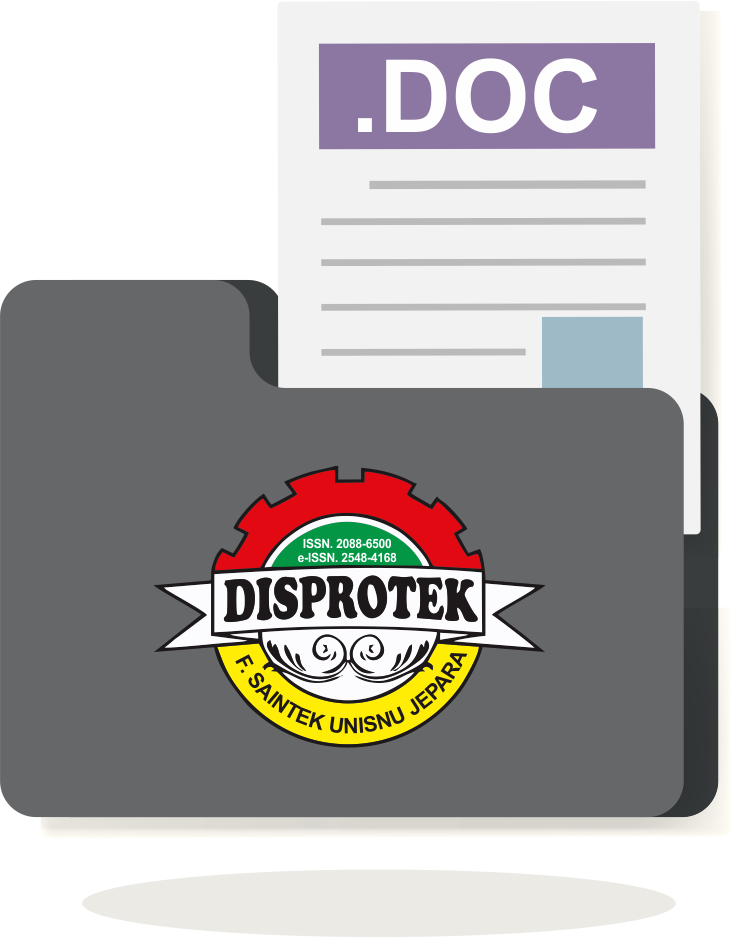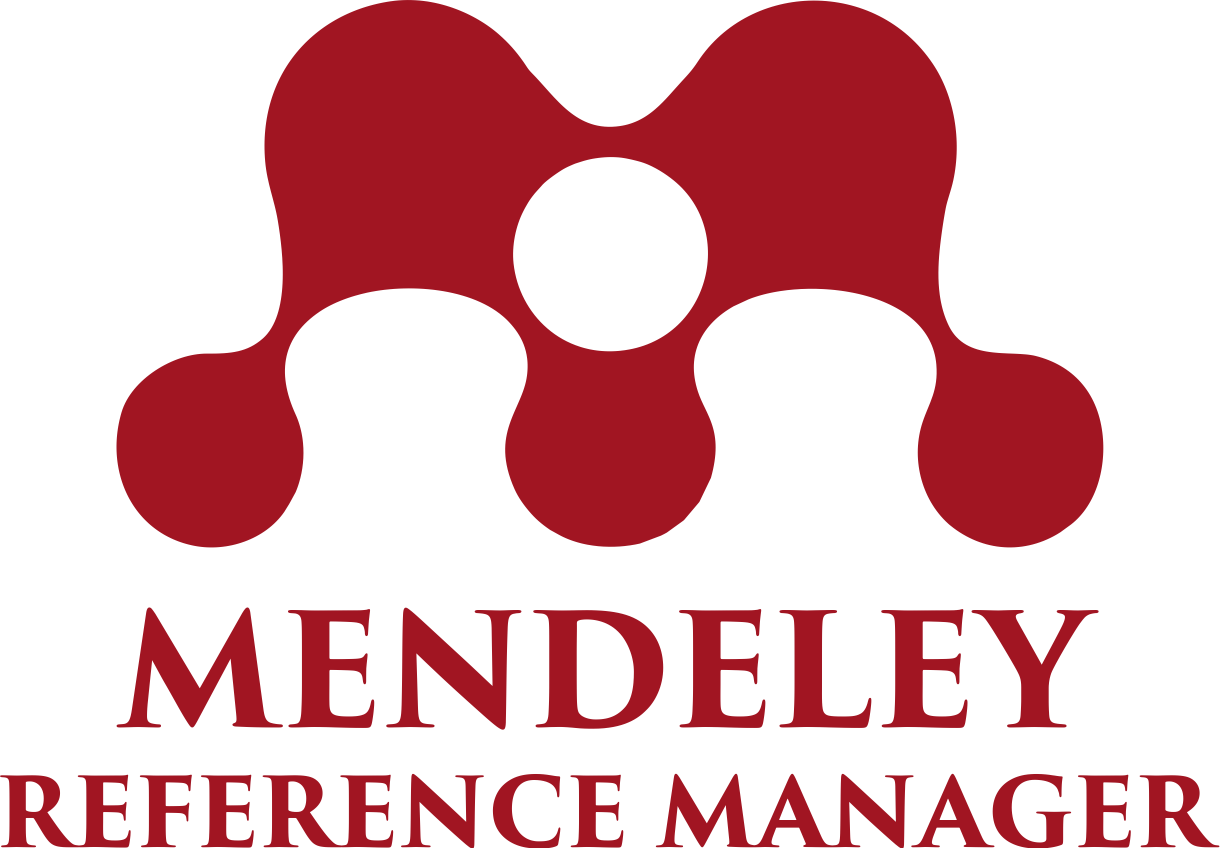- Focus and Scope
- Section Policies
- Peer Review Process
- Publication Frequency
- Open Access Policy
- Archiving
- Plagiarism
- Submission
- Publication Ethics
Focus and Scope
JDPT (Journal DISPROTEK) focuses on engineering: electrical engineering, civil engineering, and industrial engineering; in the field of computer science, informatics engineering and information systems; and in the field of fisheries, aquaculture.
- Computer Science article scope includes:
Domain-Specific Frameworks and Applications
IT management and IT governance
e-Government
e-Healthcare,
e-Learning, e-Manufacturing, e-Commerce, and e-Business
ERP and supply chain management
Business Process Management
Models, Methods, and Techniques
Conceptual modeling, languages, and design
Software Engineering
Information-centric Networking
Human-Computer Interaction
Media, games, and mobile technologies
Data Mining
Image Processing and Pattern Recognition
The scope of articles for electrical engineering includes
Power Systems
Generator
Power Distribution
Electrical Power Conversion
Protection Systems
Electrical Materials
Signals, Systems, and Digital Electronics
Signal Processing
Image Processing
Robotic Systems
Control Systems
Embedded Systems
The scope of articles for industrial engineering includes
Management Science and Operational Research
Distribution and Logistics Management
Supply chain management
Business and Management (Performance Management, Strategic Management, Human Resource Management, Marketing Management)
Decision science in business and management
Halal Industry (Halal food, Halal logistics, Halal marketing, Halal packaging, Halal financing, Halal hospitality services, and Business and Management from an Islamic or Muslim perspective)
Lean manufacturing
Operations improvement and productivity
Innovation management in operations
Product design and development
Operations in the service industry
Quality Management
Total Productive Maintenance
Human Factors Engineering
The scope of articles for civil engineering includes
Building construction,
Structure,
material,
Earthquake,
geotechnical,
environmental science,
Drainage,
transportation,
Beach engineering and
construction management.
The scope of articles for aquaculture includes
freshwater Aquaculture,
brackish and sea with the topic of fish health,
reproduction of aquatic organisms,
spawning and seeding,
Fish Nutrition and Feed,
Aquaculture Environmental Quality,
Aquaculture Engineering
Section Policies
Sains dan Teknologi
Teknik Informatika
Teknik Elektro
Teknik Sipil
Teknik Industri
Sistem Informasi
Akuakultur
Peer Review Process
Review Standard
All articles included in the JDPT (Journal Disprotek) will be reviewed by reviewers. Reviewers have the right to provide notes in the form of minor revisions, major revisions, or even rejections of articles. The decision to publish is in the hands of the Chief Editor based on the results of the article review. The editorial board provides input to the editor-in-chief if needed during the decision-making process.
Type of Peer Review
The review process employs a double-blind review, which means that both the reviewer and author identities are concealed from the reviewers and vice versa.
Reviewers are asked to evaluate whether the manuscript
Is original by stating the objectives and gaps clearly.
follows appropriate ethical guidelines
Has results or findings that are clearly presented and support the conclusions.
correctly references previous relevant work
Reviewers are not expected to correct or copyedit manuscripts. Language correction is not part of the peer review process.
Publication Frequency
JDPT (Jurnal Disprotek) is published twice a year, in January and July.
Open Access Policy
This journal provides open access, which in principle makes research freely available to the public and will support the largest global exchange of knowledge.
Archiving
This journal utilizes the LOCKSS system to create a distributed archiving system among participating libraries and permits those libraries to create permanent archives of the journal for purposes of preservation and restoration. More...
Plagiarism
JDPT (Jurnal Disprotek) does not accept journals that have been published in other media and contain elements of plagiarism. The maximum limit for plagiarism accepted by JDPT is 30% (thirty percent). Checking is done using Plagiarism Checker X or Turnitin software.
Submission
Journal manuscripts are following the template and submitted according to the submission rules to JDPT (JurnalDisprotek).
Publication Ethics
Publication Ethics
JDPT (Jurnal DISPROTEK) is a scientific journal that results from the latest research in the technology field. Under the registration numbers P-ISSN 2088-6500 (print) and E-ISSN 2548-4168 (online), it is a multidisciplinary scientific journal published by the Faculty of Science and Technology, Universitas Islam Nahdlatul Ulama Jepara.
The scope of the scientific article published in Disprotek covers the fields of informatics engineering, information systems, electrical engineering, industrial engineering, civil engineering, and aquaculture.
Journal publication is carried out twice a year, in January and July.
Journal Publication Ethics Guidelines
This scientific code of ethics statement is a statement of the code of ethics for all parties involved in the publication process of this scientific journal, namely managers, editors, peer reviewers, and authors. The Code of Ethics for Scientific Publications essentially upholds three ethical values in publication: (i) neutrality, namely freedom from conflicts of interest in publication management; (ii) justice, namely granting authorship rights to those entitled to be authors; and (iii) honesty, namely free from duplication, fabrication, falsification, and plagiarism in publications.
Publisher's Responsibilities
The Disprotek Journal publisher is responsible for publishing the manuscript after going through the process of editing, reviewing, and layout according to the rules of publishing a scientific journal.
Disprotek Journal publishers are responsible for guaranteeing academic freedom for editors and peer reviewers in carrying out their respective duties.
Disprotek Journal publishers are responsible for maintaining privacy, protecting intellectual property and copyright, and maintaining editorial freedom.
Editors' Responsibilities
The Editor of the Disprotek Journal is responsible for deciding which manuscripts are appropriate for publication through a board of editors' meeting, referring to the applicable legal requirements regarding defamation, copyright infringement, duplication, data fabrication, data falsification, and plagiarism.
In the process of reviewing and accepting manuscripts, the editorial team of the Disprotek Journal is based on the principle of equality of treatment in making decisions to publish manuscripts without discriminating against the author's race, gender, religion, ethnicity, citizenship, or political ideology.
The editor and editorial team of the Disprotek Journal will not disclose any information about incoming manuscripts except with the author's permission.
Unpublished manuscripts will not be used by the editor of the Disprotek Journal for their own purposes and will be returned directly to the author.
Peer Review
Peer review Disprotek Journal assists editors in making editorial decisions on incoming manuscripts.
Peer review Disprotek Journal is responsible for the recommendations of the manuscripts it reviews.
Manuscript review is carried out objectively and supported by clear arguments.
Peer review Disprotek Journal is responsible for the citations, references, duplication, data fabrication, data falsification, and plagiarism of the manuscripts it studies.
Peer review Disprotek Journal must always maintain the confidentiality of information and not use information from the manuscripts it studies for personal gain or interest.
Author's Responsibility
The author must present the results of his thoughts or research in a clear, honest manner without duplication, data fabrication, data falsification, or plagiarism.
The author is responsible for the confirmation submitted for the manuscript that has been written.
Authors must indicate references to the opinions and works of others.
Authors must write manuscripts ethically, honestly, and responsibly, in accordance with applicable scientific writing regulations.
The author does not double-submit to other journals while the process at Disprotek Journal is still ongoing.
The author does not mind if the manuscript is edited during the review and layout process without changing the substance or main ideas of the writing.

_001.png)




















